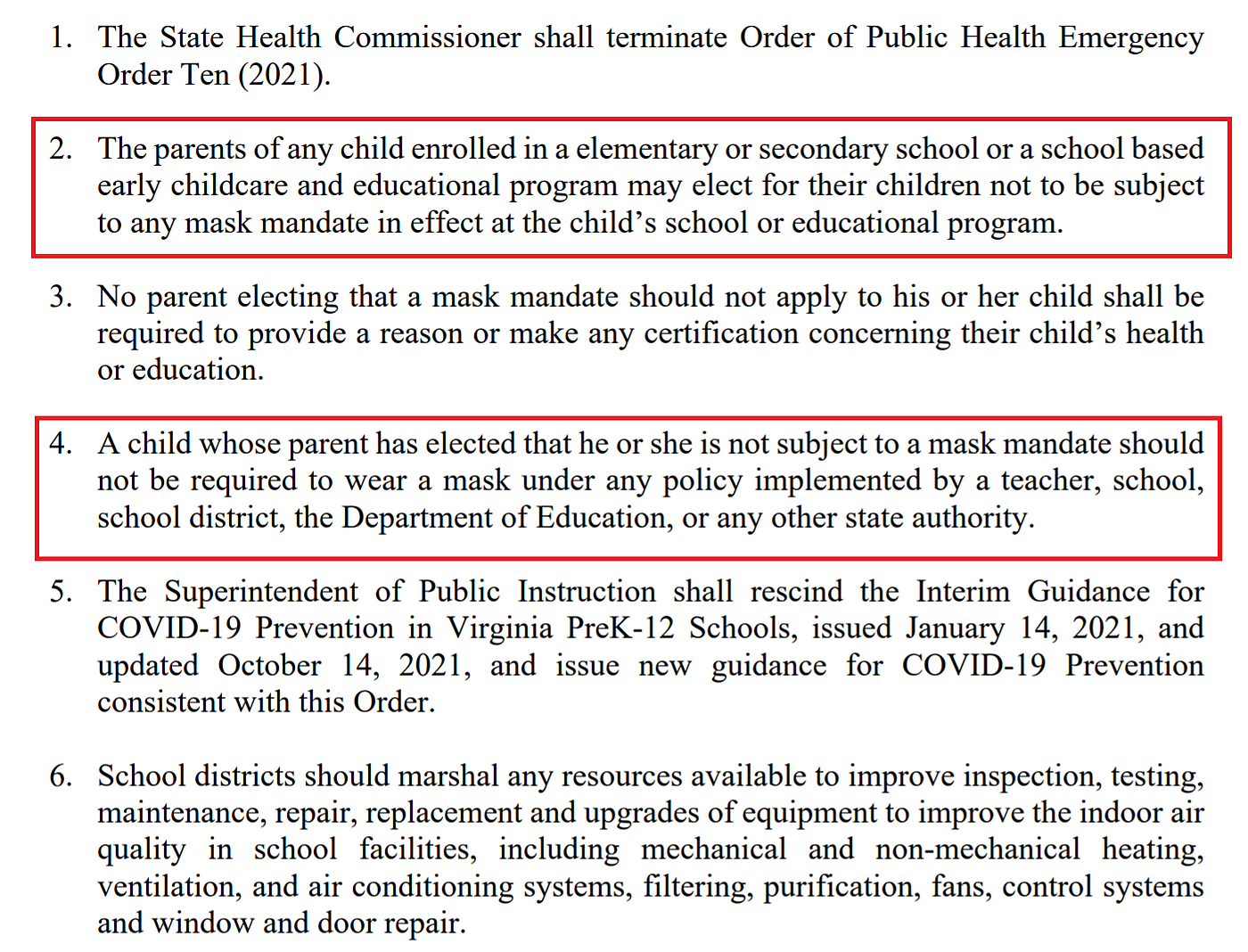Essentially the second major thing that Glenn Youngkin did when he took over Virginia’s governorship was issue an executive order – number two on the list – requiring that parents be able to choose whether or not their children wear masks in school to mitigate the spread of COVID-19. The guiding principle was clear – parents should decide whether or not their children wear masks – but the result has been confusion and upheaval. Which is to be expected when a central authority – heck, one person – makes a decision for millions of diverse people and hundreds of communities.
There was little question Youngkin’s order would upset a lot of Virginians. While those who oppose mask mandates seem to get more attention than those in favor, the latter is almost certainly more numerous.
There does not appear to be any Virginia polling since Omicron became the dominant COVID-19 variant, but a late-August Monmouth University poll found that 67 percent of Virginia parents favored a state requirement “that students, teachers, and staff…wear face masks.” 30 percent disapproved. Given the Omicron tidal wave, approval of masking mandates has most likely risen since that survey was taken. But even if it has not, a large share of parents almost certainly still wants mandates. Whipsawing from the state requiring school masking to banning school mask mandates was bound to upset a lot of parents. And it has.
Several school districts, in particular larger, more urban ones such as Alexandria City, Fairfax County, and Richmond are vowing to defy the executive order. A group of parents in Chesapeake is suing to block it. And no doubt lots of parents across the Commonwealth are worried about the prospect of some – maybe many – kids in their children’s schools walking crowded halls, eating lunch, and playing in gym class sans masks as COVID-19 continues to infect tens of thousands of Virginians every day.
Of course, parents who oppose masks in schools have plenty of solid reasons for doing so. There is hardly definitive evidence that masking in schools works, and at the very least masks make it harder for kids to talk to teachers, teachers to talk to kids, and kids to speak with each other. And that would get even more difficult if everyone were required to wear thicker N95 or KN95 masks, versus cloth masks that we are now being told are worthless.
With these competing and mutually exclusive opinions – if you think universal masking is necessary for safety you cannot accept masking choice – held by large chunks of parents, what is a governor to do?
First, though far from perfect, is allow decisions to be made at the local level. Communities in Virginia are diverse – see the voting map – and more local decision-making means policies more likely to reflect the will of more Virginians.
But what about families who find that what their community’s public schools decide is unacceptable? Why should they suffer?
They should not. But the only way for individual families and educators to get the policies they desire without having to impose them on others is school choice. Unfortunately, Youngkin’s executive order has muddied that, too.
It is unclear whether the order applies just to public schools or to all schools. As highlighted below, one part of the order refers just to “school,” without specifying public or private, while another part may refer to educators who are state authorities, perhaps meaning public school employees. A reasonable interpretation – and the safest for private schools – is that where the order does not specify “public,” or some such term, it applies to all schools.
If that is right – if the order is supposed to apply to all schools – the Youngkin administration seems to misunderstand how empowering all parents, not just some, works: All must be able to make decisions for themselves, not have government pick winners and losers.
If the order is not intended to apply to private schools, then it was poorly written and needs to be clarified. And that would still point to the danger of centralized decision-making, with an error throwing an entire state, rather than a single community or school, into confusion.
Either way, setting policy by gubernatorial dictate is a bad way to go.


